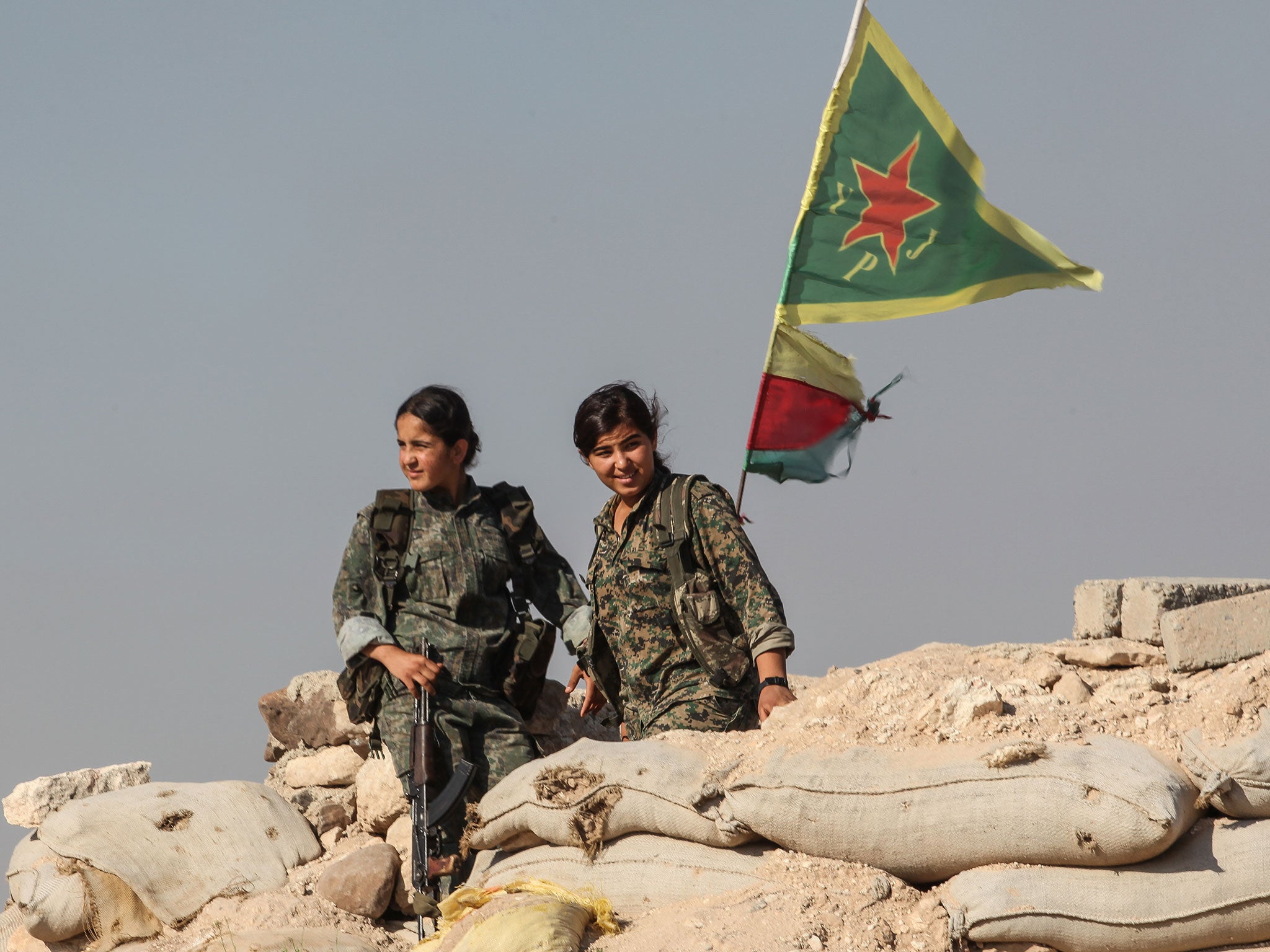US and Turkey look to Raqqa as Mosul offensive to clear Isis from Iraq nears climax
Syrian Kurdish-led troops say they have faced suicide bombers north of the de facto caliphate’s capital in Syria as the battle for Isis’ last stronghold begins

Your support helps us to tell the story
From reproductive rights to climate change to Big Tech, The Independent is on the ground when the story is developing. Whether it's investigating the financials of Elon Musk's pro-Trump PAC or producing our latest documentary, 'The A Word', which shines a light on the American women fighting for reproductive rights, we know how important it is to parse out the facts from the messaging.
At such a critical moment in US history, we need reporters on the ground. Your donation allows us to keep sending journalists to speak to both sides of the story.
The Independent is trusted by Americans across the entire political spectrum. And unlike many other quality news outlets, we choose not to lock Americans out of our reporting and analysis with paywalls. We believe quality journalism should be available to everyone, paid for by those who can afford it.
Your support makes all the difference.The US and Turkey have managed to agree on how to recapture and hold Isis’ de facto capital of Raqqa in northern Syria despite a long-standing dispute over the role of Kurdish troops in the fighting, the US Department of Defence has said.
Chairman of the US Joint Chiefs of Staff Mar Gen Joseph Dunford has been in Ankara for meetings aimed at soothing Turkish concerns over the prominent role of Syrian Kurdish People’s Defense Units (YPG) fighters in the new operation to encircle Raqqa, announced over the weekend.
The new assault - known as Operation Euphrates Wrath - has been complicated by Turkish objections to the idea of Kurdish forces cementing their territory in Syria. Ankara views the YPG as an extension of the Kurdistan Workers’ Party (PKK), outlawed in Turkey as a terror organisation, and has repeatedly pointed out that a Kurdish adminstration controlling the Sunni city of Raqqa could be a recipe for further unrest.
“The coalition and Turkey will work together on the long-term plan for seizing, holding and governing Raqqa,” Gen. Dunford said after meeting his Turkish counterpart Army Gen. Hulusi on Monday.
The Syrian Democratic Forces (SDF), made of of YPG units and Arab militias, says it was targeted by at least five car bombs to the north of the city on Monday as the lengthy and complex operation got underway.
The SDF said its fighters destroyed a vehicle rigged with explosives at a farm, while Syrian activist group Raqqa is Being Slaughtered Silently reported that SDF fighters had shelled the village of Tweila'a, forcing its residents to flee.
Isis’ news agency claimed a missile hit on a SDF armoured vehicle killed several soldiers.
The front line is still some 30 miles (50 kilometres) away from the city - and while Kurdish media official Rania Mohammed said several farms and villages have been captured since Sunday, she did not provide further details. The UK-based Syrian Observatory for Human Rights did not report any substantial gains in the first 24 hours of fighting.
The SDF’s efforts are being aided by air strikes by US, British and French warplanes. At least 16 strikes have hit Isis targets including 12 tactical units since the SDF mobilised for the latest offensive late on Saturday, US Central Command said.
A Kurdish military source speaking on condition of anonymity said that while the US-led coalition was providing “excellent” air support, “It is difficult to ... put a time frame on the operation at present. The battle will not be easy.”
US-backed forces are also currently battling for control of Mosul, the largest city under Isis control and its last stronghold in neighbouring Iraq.
A coalition led by elite Iraqi Counter Terrorism Service forces has managed to enter the city’s suburbs as the operation enters its fourth week, but progress has slowed as the Iraqi forces attempt to minimise civilian casualties.
The urban battlefield - littered with Isis roadside bombs, boobytraps and snipers - could mean the city has to be retaken as slowly as building by building. Although Raqqa is much smaller, Isis have spent almost three years digging into the city, and the battle is likely to follow a similar pattern.
Iran-backed Iraqi Shiite militias have managed to cut off Isis’ supplies lines to the east of Mosul, effectively sealing off the escape route to Raqqa.
Officials hope that the dovetailing of the two campaigns will maximise the military pressure on Isis, preventing the extremists from regrouping or planning terror attacks elsewhere.
While the world would breath a sigh of relief at the end of Isis as a land-holding force, the vacuum created could exacerbate the situation elsewhere in Syria, experts have warned.
A buffer zone filled with Turkish-backed Syrian rebels - operating against the wishes of the Russian-backed Syrian government - could be strengthened sufficiently to attempt to break the regime’s current siege of opposition neighbourhoods in Aleppo.
Moscow has previously warned Ankara that its operations against the YPG and Isis in Syria - launched in August - should not extend deeper into Syrian territory.
Join our commenting forum
Join thought-provoking conversations, follow other Independent readers and see their replies
Comments